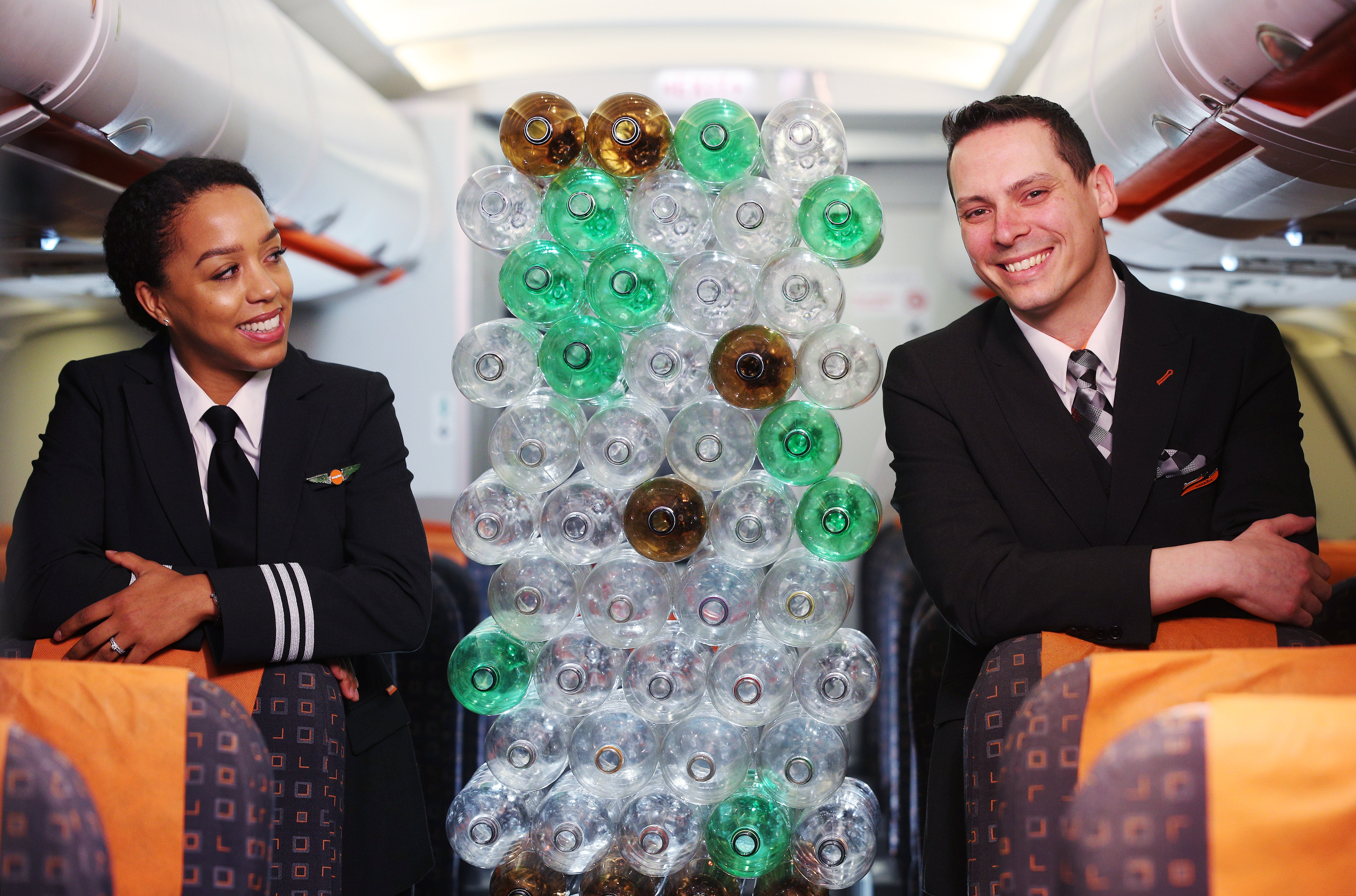Easyjet introduces cabin crew uniforms made from recycled plastic bottles
The airline says it will save 2,700,000 plastic bottles from ending up in land fill or oceans

Easyjet has announced that it is introducing a new uniform for cabin crew and pilots made from recycled plastic bottles.
Each complete uniform will be made from approximately 45 plastic bottles, saving around 2,700,000 bottles from ending up in land fill or in oceans over the course of the five-year contract with manufacturer Tailored Image.
The new fabric is also made using renewable energy sources and has a carbon footprint 75 per cent lower than traditional polyester. [HAVE ASKED EJ FOR REAL FIGURES]
It was trialled on planes last year and found to have more elasticity and to be resistant to abrasions, making it longer-lasting. This means that fewer uniforms will need to be manufactured.
Plastic has also been replaced in all clothing-related packaging, from collar stays to shirt covers. This follows steps already taken by the airline to reduce plastic waste onboard, such as offering a 50p discount on hot beverages for customers who bring their own reusable cup.
Tina Milton, director of cabin services at easyJet, said: “Climate change is an issue for all of us, and at easyJet, we are looking at all parts of our operation to see where we can reduce carbon emissions and reduce waste.
“We are excited to be debuting this new pilot and cabin crew uniform made from recycled plastic bottles and to introduce it for our pilots and cabin crew colleagues. We know that sustainability is an important issue for them and also for our customers.
“It is a priority for us to continue work on reducing our carbon footprint in the short term, coupled with long-term work to support the development of new technology, including zero-emission planes which aspire to reduce the carbon footprint of aviation radically.”
The increased durability of the uniforms notwithstanding, it is unclear how much benefit making clothing out of recycled plastic bottles actually confers.
Anna Hughes, director of the Flight Free UK campaign said:
“Reducing our plastic waste is an important step in addressing our environmental impact, but realistically it’s a drop in the ocean compared to flight emissions.
“A return flight on one of Easyjet’s popular routes, London to Milan, generates over 300kg of CO2 per passenger – that’s 1.5 times more than you would save from not using single-use plastic for an entire year.”
When it comes to the clothes themselves, microplastics are an issue with polyester, whatever its source material.
Of the 11 million tonnes of plastic entering our oceans each year, around 1 million tonnes do so in the form of ‘primary microplastics’ or plastics measuring less than 5mm, according to the Marine Conservation Society.
Washing synthetic clothing accounts for 35 per cent of primary microplastics found in the environment, with an estimated 9.4 trillion fibres released from washes every week in the UK.
Furthermore, plastic bottles are often recycled into new plastic bottles. Once they are broken down and remade into polyester, however, they are much more difficult to recycle further.
Join our commenting forum
Join thought-provoking conversations, follow other Independent readers and see their replies
Comments
Bookmark popover
Removed from bookmarks